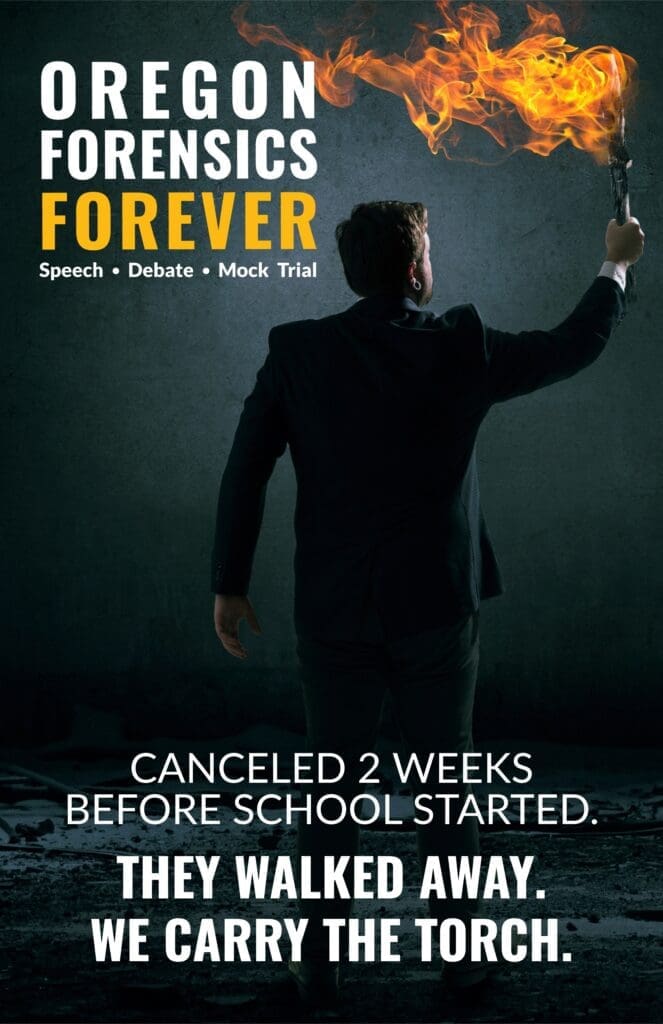FAQs
September 28th is the last date that a new organization can be recognized for the FY26 budget process (2025-2026 Timeline). Numerous barriers exist that prevent meeting this deadline from being possible. To be recognized as an ASUO organization, a prospective organization must hold meetings at least twice per month for a period of six months leading up to the application. It has not been established if meeting as a department qualifies for this requirement. Adding to this timeline, the response time by the recognition or registration teams can take up to 2 weeks (Start a Student Organization), thus even if the above requirement was waived the timeline would still be too short.
To be recognized as a Tier 2 or above organization, the minimum to receive a budget beyond surplus requests, bylaws are required (ASUO Stipend Model), the drafting process of which can take some time. Furthermore, any exemption would require a meeting of the PFC and this would lengthen the timeline as well. 2 weeks, or even 3 weeks, would not be enough time to be recognized.
In addition, the timeline to compete at tournaments this upcoming fall term is far too short. It takes 6–8 weeks for travel to be approved in many cases (Travel and Lodging), which makes it too late for many of the earlier tournaments. Not competing for an extended period reduces future participation. Mock trial also needs to be registered imminently in order to be eligible to compete and receive required materials.
Citations
- “2025-2026 Timeline: FY27 Incidental Fee Budget.” 2025. PDF.
- “ASUO Stipend Model.” 2024. PDF.
- “Start a Student Organization.” Student Government Engagement and Success, University of Oregon, https://sges.uoregon.edu/start-an-org. Accessed 14 Sept. 2025.
- “Travel and Lodging.” Student Government Engagement and Success, University of Oregon, https://sges.uoregon.edu/travel. Accessed 14 Sept. 2025.
Assuming that forensics could become a student-run program, this would not be suitable in the long-term.
Travel would become extremely challenging to organize and limited. A DFC member communicated in an email that “[I]f Forensics were to become a student organization, ASUO would not be able to support its travel needs.” (Moses). Arranging travel is a complex process that takes over 8 weeks and substantial paperwork with an in-person meeting (Travel and Lodging). Furthermore, meals and unexpected expenses would need to be paid by students upfront, with reimbursement requested later (Financial Policies). This is a significant financial burden and an equity issue for participation.
Coaching plays a central role in the educational value of forensics. Hiring a service provider for more than one day is a complex process taking up to six weeks (Service Agreement). Travel-related expenses often cannot be paid, preventing accessible at-event coaching. The same applies to judges, especially if they are recent university affiliates (Paying a University-Affiliated Service Provider).
The University of Washington provides a cautionary example: every few years a student-run forensics club forms there, only to dissolve shortly after due to the absence of professional administration, stable leadership, and staffing support. This cycle results in volatility, planning difficulties, and inferior educational outcomes. By contrast, the University of Oregon’s most significant contributions to collegiate forensics have been possible only because of its consistent institutional support.
Furthermore, the steep learning curve makes it difficult for successive generations of students to accumulate and pass on the required knowledge. It is infeasible to ask students who must balance other responsibilities to oversee these processes, and many will be unwilling to commit the required time. As a result, the organization would likely not last past the initial group of students who form it.
Citations
- Moses, Ciaran. “Re: Requirements to be Considered Department.” Received by Parker Nagy, 9 Sept. 2025.
- “Travel and Lodging.” Student Government Engagement and Success, University of Oregon, https://sges.uoregon.edu/travel. Accessed 14 Sept. 2025.
- “Financial Policies Common to ASUO-Recognized Student Organizations.” Student Government Engagement and Success, University of Oregon, https://sges.uoregon.edu/commonexpenditure. Accessed 14 Sept. 2025.
- “Purchasing Guide: Service Agreement.” Student Government Engagement and Success, University of Oregon, https://sges.uoregon.edu/purchasing-guide#service-agreement. Accessed 14 Sept. 2025.
- “Purchasing Guide: Paying a University-Affiliated Service Provider.” Student Government Engagement and Success, University of Oregon, https://sges.uoregon.edu/purchasing-guide#university-affiliate. Accessed 14 Sept. 2025.
Yes. A team of 50–100 students is not small compared to many other programs the University proudly supports. Forensics is similar in size to athletic teams like rowing, tennis, or gymnastics, as well as choirs, theater productions, or honors cohorts — all celebrated for their excellence and impact.
But the influence of Forensics extends far beyond headcount. Students in Forensics are consistently overrepresented in leadership across the university — from the DFC and PFC to the ASUO. In classrooms, they elevate the academic experience for everyone: they arrive prepared, bring organized ideas, and infuse discussions, projects, and presentations with extra sophistication and scholarly depth.
The results speak for themselves. With about 70 students in the program this past year, 15 were selected as Morse Scholars — one-third of the total cohort, drawn from more than 23,000 eligible students. Forensics students are also consistently overrepresented among Stamps Scholars, and the program has produced Oregon Six recipients, Truman Scholars, Marshall Scholars, and several Rhodes Scholar finalists and semifinalists. Few programs of any size can point to such a record of academic distinction.
Unlike most other small programs, Forensics also travels nationally, raising the university’s profile among high school students, undergraduates, and graduate schools nationwide. Its annual high school tournament even creates a direct pipeline of talented students to Oregon. In this way, Forensics is a transformative experience for participants and a force multiplier — enhancing student government, classroom learning, and the university’s reputation.
This is not new. For nearly 150 years, Forensics has been one of the University of Oregon’s most distinctive contributions to higher education. In fact, as recently as two years ago, Oregon’s Forensics program was the largest in the nation. Its size is limited only by available resources — its impact has always been disproportionate to its numbers, and it continues to exemplify the excellence and distinction of the university itself.
Yes. The majority of our peer Big Ten institutions provide full-time, professional leadership for their forensics programs. Most have a dedicated faculty director, typically housed in a Department of Communication or an Honors College, ensuring stability, academic support, and long-term program growth.
Big Ten universities with professional forensics staff include:
Minnesota, Wisconsin, Indiana, Iowa, Nebraska, Northwestern, Penn State, Purdue, USC, Michigan, Michigan State, Rutgers, and—until recently—the University of Oregon.
In contrast, universities that lack professional staffing, such as the University of Washington, tend to offer inconsistent support for forensics activities and do not share the same tradition of competitive success as Oregon Forensics.
Oregon Forensics has a long tradition of producing leaders whose influence extends far beyond campus. Many alumni credit their success to the skills and opportunities they gained through speech, debate, and mock trial. Among the most notable are:
- Don Tykeson — One of the University of Oregon’s largest donors and a transformational business leader. Tykeson served as captain of the debate team and attributed his success to the discipline, communication skills, and confidence built through forensics.
- William Knight — A standout competitor and business manager during a peak era for Oregon Forensics. Knight paid for law school by managing the debate team, exemplifying leadership, resourcefulness, and commitment to the program.
- Carlton Savage — A distinguished U.S. State Department planner who contributed to the San Francisco Conference establishing the United Nations, helped shape the Marshall Plan, advanced presidential authority over nuclear use, and founded the Savage Peace Scholarship.
These alumni exemplify how Oregon Forensics fosters leaders who go on to shape business, law, government, and global affairs.
Forensics is the art and practice of reasoned communication — drawn from the Latin forensis, meaning “of the forum.” In education, forensics refers to competitive activities where students develop and showcase their skills in speaking, argumentation, and presentation.
At Oregon Forensics, students put these skills to the test in highly competitive arenas across the state and nation. Our program provides structured opportunities for students to challenge themselves, earn recognition, and represent the University in prestigious competitions.
The program manifests through three primary events:
- Speech – Students craft and deliver powerful, engaging presentations that inform, persuade, or inspire an audience, competing for clarity, creativity, and impact.
- Debate – Students build well-researched arguments, analyze complex issues, and test ideas through structured exchanges, measured against peers in tournaments.
- Mock Trial – Students bring legal advocacy to life, presenting cases before judges and juries while competing on their ability to argue persuasively and think on their feet.
Together, these disciplines embody the essence of forensics: competitive communication that builds confidence, sharpens intellect, and prepares students to lead.
The word forensics comes from the Latin forensis, meaning “of the forum.” In ancient Rome, the forum was the public square where citizens gathered to debate ideas, present arguments, and advocate in legal cases. That tradition of public reasoning and persuasion is the foundation of today’s educational forensics.
While popular culture often associates the term with crime labs and investigations, in the academic world, forensics means competitive communication. It is the discipline of testing ideas, sharpening critical thinking, and demonstrating the power of persuasive speech.
At Oregon Forensics, this heritage lives on through speech, debate, and mock trial — arenas where students argue, perform, and compete, carrying forward a centuries-old legacy of using words to inform, persuade, and inspire.
How You can Help

Carry the Torch
Two weeks before classes began, the University canceled Oregon Forensics.
This decision ends nearly 150 years of nationally recognized excellence in debate, speech, and mock trial. We are deeply disappointed.
But the legacy is too strong to vanish. Alumni, students, and supporters are working together to ensure Oregon Forensics endures beyond this moment.
If you believe in the power of communication, advocacy, and leadership training, we invite you to stand with us.
https://oregonforensics.com
STAY IN TOUCH
